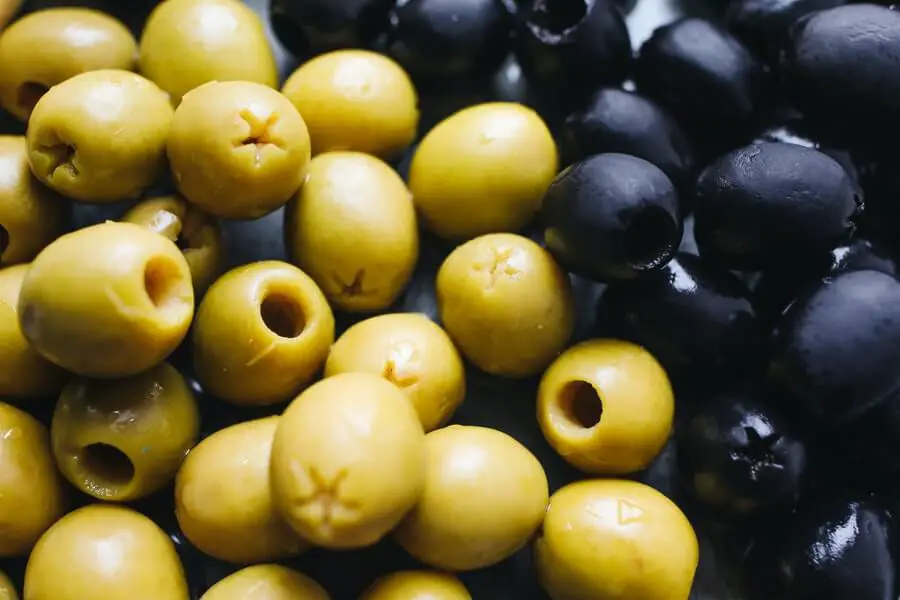Do you know that eating olives can give you olive skin? It’s true! Olives are a great source of monounsaturated fatty acids, which are known to improve skin appearance.
To answer the question, however, olives do not give you olive skin. If you’re looking for a natural way to get gorgeous, healthy skin, start adding olives to your diet. If you have a pale skin tone and want olive skin, getting a tan will be your best bet.
Olives are a great moisturizer, and it can help to fight against the signs of aging. So if you’re looking for a way to improve your skin tone and overall appearance, start eating olives.
Olives are also considered to be a good source of vitamin E, which is known to help protect your skin from the sun. So if you want olive skin, make sure to include olives in your diet and take care of your skin by protecting it from the sun’s UV rays.
Health Benefits of Eating Olives
Olives are a delicious snack that can actually help improve your complexion! The health benefits of olives include an increase in vitamin E and antioxidants, which work together to fight against free radicals.

Free radicals damage cells, leading to signs of aging like wrinkles and age spots.
Antioxidants also prevent premature aging by neutralizing these free radicals before they do any damage at all. This is why many people who eat lots of olive oil or even just plain olives have beautiful skin that looks years younger than their actual age.
Some of the other health benefits you can get from eating olives include –
- Olives have been shown to be good for the heart.
- Olives can protect against diseases like osteoporosis and cancer.Olives are good for the digestive system.
- The antioxidants in olives can also help fight against Alzheimer’s disease, diabetes and even rheumatoid arthritis.
- Olives help to improve the health of your digestive tract by providing a good source of fiber.
- Olives also contain polyphenols, which are plant-based chemicals that have been shown to be beneficial for human health in many ways.
- Olives help improve cognitive function and protect the brain from damage.
What happens when you eat too much olives?
Olive oil is a healthy fat that has been shown to have a ton of health benefits. But what happens if you eat too many olives? Can you get sick from them? Are there any side effects?
Olives should ideally be eaten in moderation because most food producers preserve olives in brine – liquid with a high salt content.
These high levels of salt in the body can increase the risk of developing high blood pressure, heart disease and other health problems
When eaten in moderation, olives are a healthy snack that can provide many health benefits – including improved skin tone! So go ahead and enjoy a few olives every day to improve your overall health. Just make sure to watch your salt intake so you don’t overdo it.
Are olives good for hair?
Olives are a fruit that is often enjoyed in salads or as part of a dish. But some people may not know that olives can also be beneficial for hair.
Olives are rich in antioxidants and vitamins A, E, and K, which help to nourish and protect the hair. They can also help to fight against free radicals, which can cause damage to the hair.
In many instances, adding olive oil to your hair care routine can help keep your hair healthy and shiny. This is because olive oil helps to moisturize the hair and protect it from environmental damage
In order for this to have an optimal effect, you’ll need to use a high-quality product that doesn’t contain fillers or other ingredients that can be harmful.
Olives are a great source of hair-healthy nutrients like vitamins A, E, and K. They’re also high in protein which is essential for healthy hair growth. The oil that they contain can be used to stimulate blood flow to the scalp which nourishes the follicles and encourages new hair growth.
It is also an excellent natural remedy for dry, brittle hair. It has been used in Greece since ancient times to keep the nape of the neck and temples soft and supple. In addition, it is a great conditioner that helps with tangles and split ends.
Olives also provides protection from sun damage (which can lead to premature graying) and keep your locks healthy during cold winter months.
Are Canned Olives Healthy?
Canned olives are a healthy and tasty option for those looking to include more plant-based foods in their diet. It is important, however, to read the ingredients before purchasing canned olives. Make sure that there are no added sugars or sodium salts.

Canned olives can be eaten as a snack or used as an ingredient in recipes such as salads and pasta dishes.
Canned black olive halves with pimento peppers make a popular appetizer served on toothpicks at parties and gatherings.
Green olives often contain olive oil, water, salt, and citric acid for preservation. And while both types of canned olives can be healthy (depending on your diet), you should read labels before purchasing any food product to make sure you know exactly what you’re getting.
For those who want the convenience of canned fruit without sugar, these briny little balls of flavor will satisfy your craving.
Are black or green olives healthier?
While both types of olives offer health benefits, there are some differences between the two. Let’s take a closer look at the nutritional profiles of black and green olives to see which one comes out on top.
Black Olives
Black olives have a very high iron content. Oxygen is carried through the body by red blood cells which rely on the presence of iron in the blood. Iron deficiency can lead to anemia and fatigue
Black olives also provide an excellent source of manganese. Manganese helps our bodies use some nutrients such as biotin and thiamine, which produce energy from carbohydrates in the body.
Black olives also have less calories (36) and less fat (3 grams) than green olives do, so black olives a better option for a consistent addition to a meal.
Green Olives
Green olives are a better option if you are trying to boost your vitamin E level. Green olives contain 20% of the recommended daily intake of vitamin E.
They also have high levels of phytochemicals which are natural disease fighters. Phytochemicals act as antioxidants that can help reduce body-wide inflammation and fight against free radicals, which damage cells and lead to disease
Green olives have higher calories (49) and fat (5 grams) than black olives, but if you’re looking for a good source of vitamin E, then they are the better option.
So, what’s the verdict?
While both black and green olives have their own unique set of benefits, black olives come out marginally ahead as the healthier option. They are a good source of antioxidants and vitamins, which can help improve your overall health.
They are rich in fatty acids and antioxidants that nourish, hydrate, and protect.
If you’re looking for a healthy snack that is low in calories and high in nutrients, black olives are a good option. But if you’re looking for a source of vitamin E, then green olives are the way to go.

